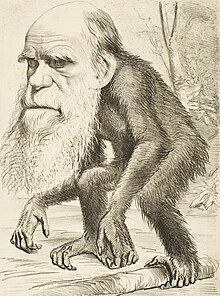 The Heartland Institute recently put up a series of billboards featuring Ted Kaczynski (the Unabomber), Charles Manson (a cult leader), and Fidel Castro (a dictator). The text read: “I still believe in Global Warming. Do you?”
The Heartland Institute recently put up a series of billboards featuring Ted Kaczynski (the Unabomber), Charles Manson (a cult leader), and Fidel Castro (a dictator). The text read: “I still believe in Global Warming. Do you?”
These are examples of the genetic fallacy. We’re asked, “How plausible can the claim of global warming be if these nutjobs accept it?” A genetic fallacy ignores any actual evidence or argument and looks instead at the origin (think genesis) of the argument. It’s a fallacy because it offers no relevant argument.
Another example would be, “You’re a vegetarian? Don’t you know that Hitler was a vegetarian?”
But consider this: “You can’t tell me that those new phosphorescent zucchinis are safe! Don’t you know that the research that supports that claim was funded exclusively by MegaCorp, the company that patented that vegetable?”
This claim is more compelling. Though it is genetic, it does more than make a simple origins claim. Compare that with “Don’t tell me that phosphorescent zucchini are safe! MegaCorp says they’re safe.” Stripped of the evidence, it becomes an example of a genetic fallacy. (Of course, the evidence about MegaCorp could be false, but with it the claim at least avoids the genetic fallacy.)
Now consider these claims: “Christianity was influenced by myths of dying-and-rising saviors; therefore, the resurrection of Jesus must also be a myth.” Or, “The Noah flood story came from a society influenced by neighboring flood stories like that of Gilgamesh; therefore, the Noah flood story is a myth.”
These are (1) genetic, since they make conclusions based on origins, (2) unsubstantiated, since these claims will need lots of supporting evidence, and (3) fallacies. I would argue that these aren’t genetic fallacies, however. They fail in my mind because the unequivocal conclusion (“… must also be a myth”) can’t be built on evidence that simply points in that direction.
The fallacy vanishes when we make a conclusion that could follow from the evidence: “Christianity was influenced by myths of dying-and-rising saviors; therefore, we must consider that the resurrection of Jesus may also be a myth.” We still have work to do to establish that Christianity was influenced as claimed, but the fallacy is gone.
The genetic fallacy is the term for any argument that points solely to origin as its evidence, but there are many subsets based on the specific origin.
- Ad hominem: attacking the person rather than the argument. “Senator Jones wants to raise taxes, but he beats his dog; therefore, raising taxes is a bad idea.”
- Tu quoque: saying, in effect, “Oh yeah? Well you do, too!” This argument tries to respond to a problem by claiming that the other person suffers from it also.
- Argument from authority fallacy: using an authority as a relevant source when that person is not an authority in the field at hand, rejects the consensus view (if any), or is biased.
- Credential fallacy: rejecting an authority because that person doesn’t have the right degrees.
- Ad feminam: rejecting an authority because that person is a woman.
And so on.
Avoid making thoughtless charges of these fallacies. Not every attack on a person is an ad hominem fallacy. “Just ignore that fire alarm; that’s nutty Mrs. Smith” may be a fallacy, but “Ignore that fire alarm; that’s Mrs. Smith, and she’s phoned in a false alarm about every week for over three years” isn’t. (It may not be the safest response for the fire department, but it’s not a logical fallacy.)
And as seen above, not every genetic (origins) argument is a fallacy.
Photo credit: Simon Varwell
Related posts:
- Argument from Authority (and How Consensus Fits In)
- See all the definitions in the Cross Examined Glossary.
Related links:
- “Heartland Institute compares belief in global warming to mass murder,” The Guardian, 5/4/12.
- “Genetic fallacy,” Wikipedia.
- “Genetic fallacy,” Iron Chariots Wiki.
- “Forms of the Genetic Fallacy,” Friesian web site.
- “Ad hominem,” Wikipedia.
- “Argumentum ad hominem,” RationalWiki.

